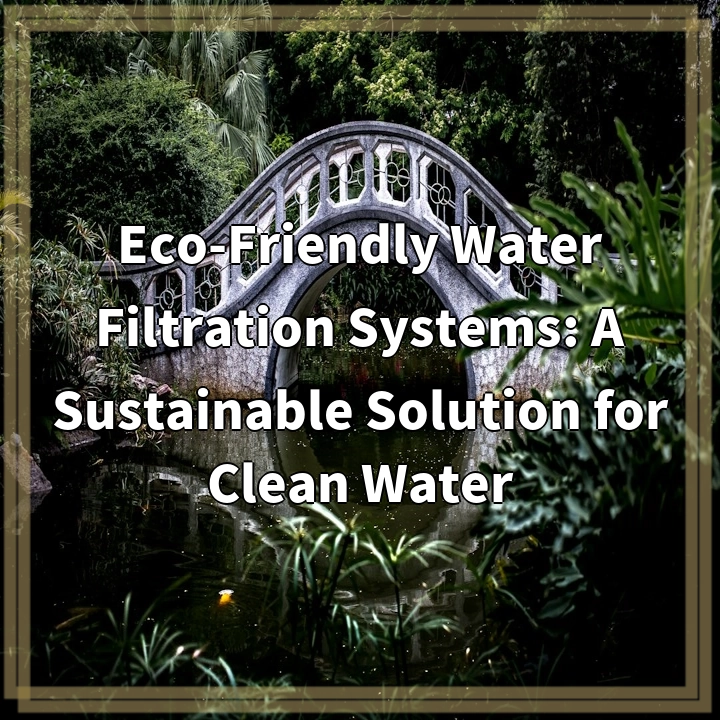
What it is:
Eco-friendly water filtration systems are innovative technologies that are designed to purify water while minimizing their impact on the environment. These systems utilize sustainable methods to ensure the removal of impurities, contaminants, and pollutants, providing clean and safe drinking water.
Real-World Problems:
While access to clean water is a basic necessity, many regions around the world face significant challenges in obtaining safe drinking water. Here are some real-world problems associated with water filtration:
1. Water Pollution:
Rapid industrialization, improper waste management, and agricultural practices have resulted in water pollution. Contaminants such as chemicals, heavy metals, and microplastics pose a serious threat to public health. Eco-friendly water filtration systems are crucial in addressing this problem by effectively removing these pollutants.
2. Plastic Waste:
Traditional water filtration systems often rely on single-use plastic filters, leading to the generation of a large amount of plastic waste. Eco-friendly systems offer solutions by utilizing reusable and recyclable filter materials, reducing the environmental impact of filtration processes.
3. Energy Consumption:
Some conventional water filtration methods can be energy-intensive, contributing to greenhouse gas emissions and environmental degradation. Eco-friendly systems focus on energy-efficient technologies, minimizing carbon footprint while ensuring efficient water purification.
4. Limited Access to Clean Water:
For many communities, particularly in developing regions, access to safe drinking water remains a significant challenge. Eco-friendly water filtration systems provide a sustainable and cost-effective solution, offering clean water without relying on expensive or inaccessible infrastructure.
By addressing these real-world problems, eco-friendly water filtration systems play a crucial role in promoting sustainable development and ensuring access to clean water for communities worldwide.

Solutions:
1. Advanced Filtration Technologies:
Eco-friendly water filtration systems incorporate advanced technologies such as activated carbon filters, reverse osmosis membranes, and ultraviolet disinfection. These technologies effectively remove pollutants and contaminants from water, ensuring its safety for consumption.
2. Sustainable Filter Materials:
By utilizing reusable and recyclable filter materials such as ceramic, coconut shell carbon, or biodegradable membranes, eco-friendly water filtration systems reduce plastic waste and promote a circular economy.
3. Energy Efficiency:
Eco-friendly filtration systems prioritize energy-efficient processes and technologies, requiring less energy consumption compared to conventional systems. This helps minimize carbon emissions and reduce the environmental impact of water purification.
4. Community Engagement and Education:
Creating awareness and educating communities about the importance of clean water and sustainable filtration systems is crucial. By involving local communities and empowering them with knowledge, eco-friendly water filtration systems can be effectively implemented and maintained.
By implementing these solutions, we can work towards a future where clean water is accessible for all while minimizing the environmental impact of water filtration processes. Eco-friendly water filtration systems provide a sustainable and effective solution, addressing real-world problems associated with obtaining safe drinking water.















